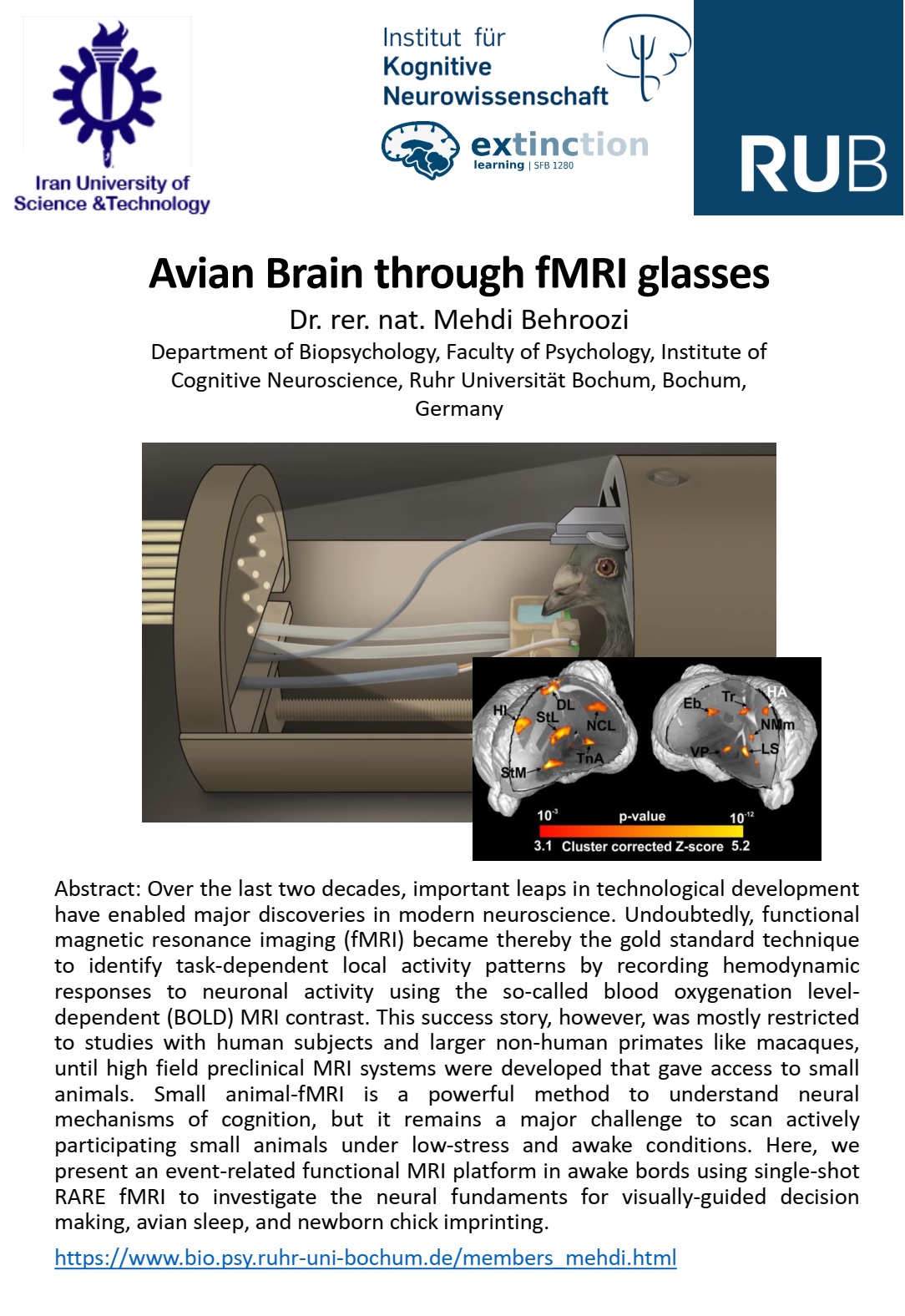Biography:
Mehdi Behroozi received his MS. in biomedical engineering in 2012 from the Iran
University of Science and Technology (IUST) under the supervision of Prof. Dr.
Mohammadreza Daliri. He was a non-resident researcher at Scholl of Cognitive
Science, IPM Iran from 2012-2015 in the monkey laboratory. He started his Ph.D.
at biopsychology department at Ruhr Universität Bochum, Bochum Germany under
the supervision of Prof. Drs. Güntürkün. During his PhD., Mehdi could develop a
platform to investigate actively behaving pigeons using a 7T fMRI scanner for the
first time. Since 2019 he is a postdoc at the same laboratory. His main research
interest is neuroimaging in the avian brain to understand: (i) neural mechanism of
pigeon cognition; (ii) neural mechanism underlying avian sleep; (iii) and neural
mechanism of imprinting in newborn chicks.
Abstract:
Over the last two decades, important leaps in technological development
have enabled major discoveries in modern neuroscience. Undoubtedly, functional
magnetic resonance imaging (fMRI) became thereby the gold standard technique to
identify task-dependent local activity patterns by recording hemodynamic responses
to neuronal activity using the so-called blood oxygenation level-dependent (BOLD)
MRI contrast. This success story, however, was mostly restricted to studies with
human subjects and larger non-human primates like macaques, until high field
preclinical MRI systems were developed that gave access to small animals. Small
animal-fMRI is a powerful method to understand neural mechanisms of cognition,
but it remains a major challenge to scan actively participating small animals under
low-stress and awake conditions. Here, we present an event-related functional MRI
platform in awake bords using single-shot RARE fMRI to investigate the neural
fundaments for visually-guided decision making, avian sleep, and newborn chick
imprinting.

